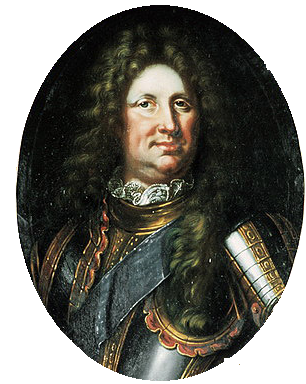 |
| Prince Max Emanuel and Countess Anna Maria on their wedding day.
Photograph (c) Getty Images / Hans Gregor. |
 |
| The wedding card of Prince Max Emanuel and Princess Anna Maria von Thurn und Taxis. |
Prince Max Emanuel "Nini" von Thurn und Taxis (1935-2020) and Countess Anna Maria "Mirzl" von Pocci (1944-2008) married civilly at Schwangau on 20 May 1969. The couple celebrated their religious union two days later on 22 May 1969 in a ceremony at Saint Coloman's Church; Father Emmeram of Thurn and Taxis, the uncle of the groom, presided over their Roman Catholic nuptials. The wedding festivities were attended by nearly three thousand guests. The prince was the son of Prince Raphael Ranier von Thurn und Taxis (1906-1993) and his wife and second cousin Princess Margarete "Rita" (1913-1997; née Princess von Thurn und Taxis). The countess was the daughter of Count Konrad von Pocci (1904-1985) and his first wife Countess Anna-Elisabeth (1908-1964; née Hartmann). The von Pocci comital family was not considered up to snuff for the Thurn und Taxis dynasty, and the marriage was deemed morganatic.
 |
| Photograph (c) Interfoto / Friedrich Rauch |
 |
| Photograph (c) Interfoto / Friedrich Rauch |
 |
| Photograph (c) Interfoto / Friedrich Rauch |
The wedded bliss of Max Emanuel and Anna Maria was of short duration. In April 1970, Anna Maria left her husband and took refuge at the Hohenschwangau home of her lover Walter Stanner. Mr Stanner was an innkeeper, wild-game dealer, and the local chairman of the Jung Union Deutschlands (Young Union of Germany) of the CSU (Christian Social Union in Bavaria). Max Emanuel's father Raphael was a district counsellor in Bavaria and also belonged to the CSU. Quite bizarrely, looking back from the lenses of today, a number of protestors positioned themselves outside of the residence. The signs that the protestors carried bore such slogans as: "Adulteress Out!" and "We want justice for our Nini!" and "Mirzl, what is the new price of french fries?" Police were on hand to guarantee that the situation did not escalate beyond the demonstrations.
 |
| Prince Max Emanuel and his mother Princess Margarete von Thurn und Taxis.
Photograph (c) Keystone Press / Alamy. |
 |
| Countess Anna Maria von Pocci and Walter Stanner.
Photograph (c) Keystone Press / Alamy. |
The union of Prince Max Emanuel and Princess Anna Maria von Thurn und Taxis was dissolved by divorce on 6 July 1970. A penalty of DM 100,000 prohibited both parties from discussing the specific issues that caused the breakdown of the marriage. Nonetheless, shortly after the divorce, both sides held duelling press conferences. Prince Max Emanuel and his mother Princess Margarete gave their point of view at the Munich hotel Bayerischer Hof. When asked of his future marital plans, the prince responded: "I've had it for awhile." Countess Anna Maria and Walter Stanner, an innkeeper and restauranteur, held their press conference at a Munich biergarten. They announced that they intended to marry in September 1970, after which time the countess would help her new husband with his restaurant. Shortly before the TnT/Pocci press conferences, Walter Stanner was visited by the local chairman of the CSU. During an interview with Der Spiegel in June 1970, Stanner stated: "The chairman came to coffee and said it was a delicate matter. I should voluntarily quit the party because of the princess story." Indeed, there was a motion in the party to eject Stanner owing to "party-damaging behaviour." Stanner countered the chairman's proposal by noting: "my private life has nothing to do with my political activity." Stanner rejected the request to voluntary resign his CSU membership and stated that, since an arbitral tribunal was already entrusted with the case - if necessary, it would "go to the Federal Constitutional Court." Stanner then speculated, perhaps correctly, that the driving force behind the move to eject him from the CSU was Prince Raphael von Thurn und Taxis, the father of the abandoned Prince Max, "who plays a certain role in the matter." As mentioned above, Prince Raphael was a CSU district councillor. Stanner went on to say that "in the family's [Thurn und Taxis'] 1,000-year history, it has never happened to them that a princess leaves one of their own for a commoner."
 |
| Prince Max Emanuel and Princess Christa of Thurn and Taxis.
Photograph (c) dpa / Alamy. |
 |
| Countess Anna Maria von Pocci. |
The Roman Catholic Church granted an annulment to the Thurn Taxis/Pocci marriage in 1972. Despite the fallout from this coupling, it is fair to say that the couple lived happily ever after, just not together. On 6 November 1970, Countess Anna Maria von Pocci married Walter Stanner (1940-2003). The couple did not have children and divorced in 1997. The countess, a third cousin once removed of British Prime Minister Boris Johnson, died in December 2008. In March 1973, Prince Max Emanuel von Thurn und Taxis married Christa Heinle (b.1941); the couple had two sons. The prince, a first cousin of Fürst Johannes von Thurn und Taxis, died in March 2020; he was survived by his wife Princess Christa.
______________
For further news and articles about Europe's imperial, royal, and noble families, join Eurohistory:
























